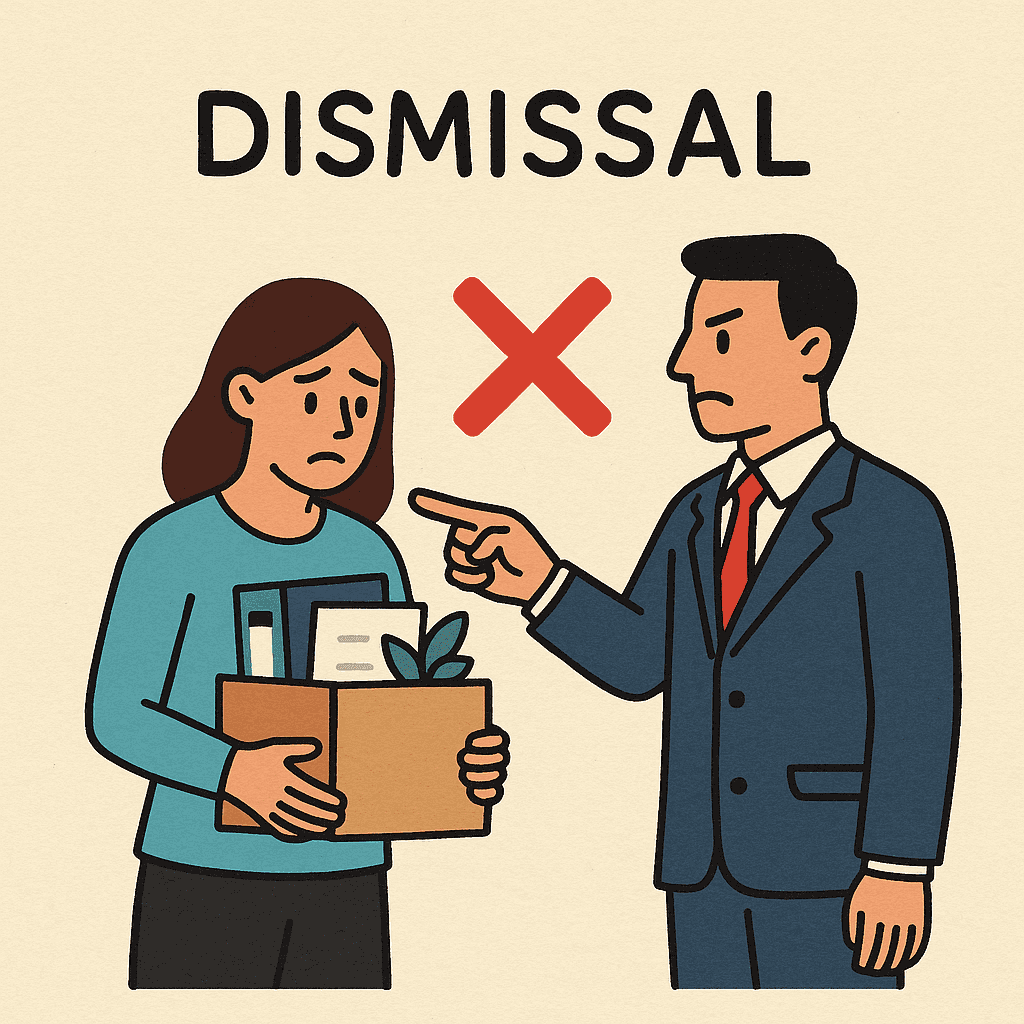Meaning
Dismissal is a noun that refers to the act of removing someone from a position, job, or duty, or the act of sending someone away. It can also mean treating something as unimportant or unworthy of attention.
Grammar and Usage
-
Part of speech: Noun
-
Countable/Uncountable: Usually countable (e.g., “two dismissals”), but can also be uncountable depending on context.
-
Common structures:
- dismissal of + noun → rejection or disregard of something (e.g., dismissal of evidence).
- dismissal from + position/job → removal from employment (e.g., dismissal from the company).
Common Phrases
- wrongful dismissal – firing someone illegally or unfairly
- summary dismissal – immediate firing without notice
- dismissal of the case – legal term meaning the case is thrown out
- dismissal letter – a document informing someone of termination
Collocations
- Adjectives + dismissal: wrongful dismissal, unfair dismissal, summary dismissal, immediate dismissal
- Verbs + dismissal: face dismissal, result in dismissal, lead to dismissal, appeal a dismissal
- Dismissal + nouns: dismissal letter, dismissal notice, dismissal order
Examples
- The manager’s unfair dismissal of several employees led to a lawsuit.
- His dismissal from the team shocked all the players.
- The judge ordered the dismissal of the case due to lack of evidence.
- She appealed her dismissal, claiming it was based on discrimination.
- The teacher’s dismissal of the student’s question seemed harsh.
- After repeated warnings, the employee finally faced dismissal.
- Summary dismissal is often reserved for cases of serious misconduct.
- The lawyer fought to prevent the dismissal of the client’s claim.
Synonyms or Related
- For job context: termination, firing, discharge, redundancy (esp. UK)
- For rejection context: rejection, disregard, denial, exclusion
